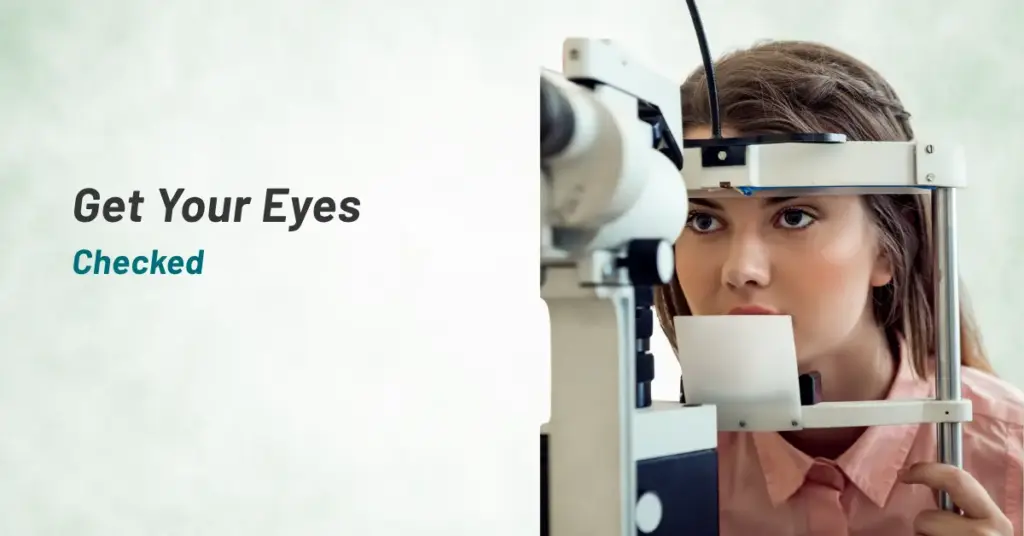Your eyes are your windows to the world, but how often do you really pay attention to their health? Many of us only visit an eye doctor when something feels wrong, but regular checkups are essential even if your vision seems perfect. So, how often should you get your eyes checked? The answer depends on your age, overall health, and risk factors.
This age-wise eye care guide explains when to schedule routine eye exams at different stages of life, what to expect, and why regular visits are critical for preserving your vision.
Why Are Regular Eye Exams Important?
Your eyes can reveal more than just vision problems. Routine eye exams not only help detect refractive errors like nearsightedness or farsightedness but also identify serious health conditions early. Diseases like glaucoma, cataracts, and diabetic retinopathy often develop without noticeable symptoms at first — and early detection can save your sight.
For many people, understanding eye health by age and scheduling proper care can prevent long-term damage. Regular exams also help monitor changes in vision that may come with aging, medical conditions, or lifestyle factors.
An Eye Care Guide for Every Stage of Life
Here’s a detailed age-wise eye care guide to help you plan your visits to the optometrist or ophthalmologist.
Infants and Toddlers (0–3 years)
Eye development begins at birth, so the first few years of life are crucial. Doctors generally examine a newborn’s eyes in the hospital to check for congenital issues.
- At 6 months, schedule a comprehensive eye exam to evaluate eye alignment, movement, and overall development.
- Another exam is recommended at 3 years, to catch issues like lazy eye (amblyopia) or crossed eyes (strabismus), which are easier to treat when detected early.
Children and Teenagers (4–18 years)
Vision problems can affect learning and development, making regular checkups vital during school years.
- Before starting school (around age 5), children should have their vision tested.
- If no problems are found, exams every 1–2 years are typically sufficient.
- If your child wears glasses, contact lenses, or has a family history of eye disease, your doctor may recommend more frequent visits.
Routine eye checkup frequency during childhood ensures that vision changes don’t interfere with academic or social development.
Young Adults (19–39 years)
For adults with no vision problems or risk factors, a comprehensive eye exam every 2–3 years is usually recommended. However, you should schedule a visit sooner if you experience:
- Sudden changes in vision
- Eye pain or discomfort
- Frequent headaches related to vision
- Family history of eye diseases
If you wear corrective lenses, follow your doctor’s advice — usually annual exams — to ensure your prescription stays up-to-date.
Middle-Aged Adults (40–64 years)
Once you hit your 40s, your risk for age-related eye conditions begins to increase. Many people notice presbyopia (difficulty reading fine print) in this age group.
- At 40, it’s recommended to have a baseline comprehensive eye exam.
- After that, schedule follow-up exams every 1–2 years, or as advised based on risk factors.
This is also the age when routine eye exams can detect early signs of glaucoma, cataracts, and macular degeneration — conditions that may not cause noticeable symptoms at first.
Seniors (65 years and older)
In your senior years, annual eye exams become essential. Vision naturally declines with age, and the risk of serious conditions like glaucoma, cataracts, and diabetic eye disease rises sharply. Regular checkups ensure these conditions are caught and managed early to preserve your sight.
So, how often should you get your eyes checked after 65? Plan for a visit every year, even if you feel your vision is stable.
Risk Factors That May Require More Frequent Eye Exams
Some people may need more frequent care at any age. If you have any of these risk factors, your doctor may recommend more regular visits:
- Family history of glaucoma or macular degeneration
- Diabetes or high blood pressure
- Previous eye injuries or surgery
- Certain medications that affect vision
- Prolonged screen use or occupational hazards
Knowing when to see an eye doctor for your unique needs is crucial to protecting your eyesight.
Signs You Should See an Eye Doctor Immediately
Don’t wait for your next scheduled exam if you experience:
- Sudden vision loss or blurred vision
- Flashes of light or floaters
- Severe eye pain or headaches
- Redness, swelling, or discharge
- Double vision or difficulty focusing
These symptoms could indicate a serious condition that needs prompt treatment.
Tips to Maintain Healthy Eyes Between Exams
Here are a few simple habits to keep your eyes healthy at any age:
- Wear sunglasses with UV protection outdoors
- Stay hydrated to avoid dry eyes
- Eat a balanced diet rich in leafy greens, fish, and vitamins
- Follow the 20-20-20 rule when using screens: look 20 feet away for 20 seconds every 20 minutes
- Avoid smoking, which increases the risk of many eye diseases
Good daily habits combined with regular exams can help you maintain clear vision for years to come.
Final Thoughts
So, how often should you get your eyes checked? The answer depends on your age, health history, and risk factors — but here’s a quick summary:
- Infants: at 6 months and 3 years
- Children: every 1–2 years
- Young adults: every 2–3 years
- Middle-aged adults: every 1–2 years
- Seniors: annually
Routine checkups are a simple but powerful way to protect your eyesight, detect problems early, and maintain overall health. Use this age-wise eye care guide as a roadmap and discuss your individual needs with your eye doctor.
Your eyes deserve care at every stage of life — schedule your next exam today and see the difference it makes!

